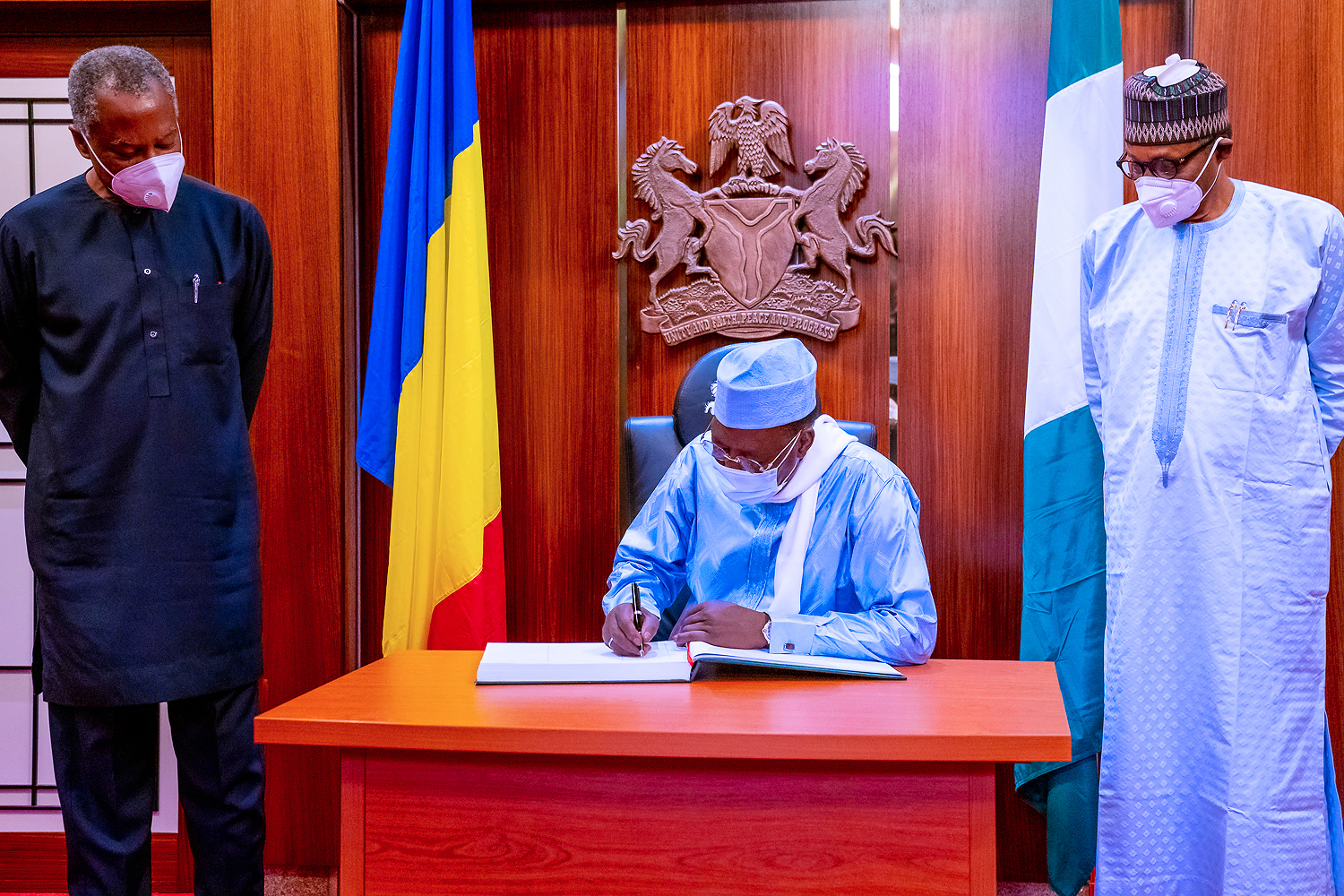Business
MOWCA Seeks Transit Trade Between Nigeria, Chad

The Secretary General, Maritime Organisation of West and Central Africa (MOWCA), Dr Paul Adalikwu, has promised to facilitate seamless transit cargo movements from Nigeria’s Dry Ports to the Republic of Chad.
Adalikwu stated this in Nd’jamena, the Chadian capital, during his maiden visit to the Chadian Minister of Transportation, Hajia Fatima Goukouni Weddeye, where he expressed readiness to support the country’s Ministry of Transportation and the Shippers’ Council for the facilitation of transit transport of Chad destined cargoes.
He also promised to make arrangement for officials of Chad government to visit the proximate dry ports in northern Nigeria as a way of preparing grounds for the promotion of intra-African trade in line with the focus, African Continental Free Trade Area (ACFTA).
The MOWCA SG reassured that all 25 member-countries of the organisation, including landlocked states, will enjoy technical support to uncover and harness the economic benefits of a thriving blue economy.
Hajia Weddeye, who commended Adalikwu for championing a reawakening in MOWCA, described the SG as a dynamic leader who has shown transformational traits within a short period.
She said the Ministry of Transportation of Chad and the country’s Shippers Council will deepen collaboration with MOWCA and requested Adalikwu to enable the visit of the technical staff of the Ministry to the Dry Ports established in northern part of Nigeria.
She described the upcoming Regional Maritime Development Bank as a laudable initiative of MOWCA, adding that it will fill the gap of sustainable funding of transport activities that are the backbone of foreign trade.
The Minister said upon study of the bank’s charter by her ministry’s technical team, an informed decision will be taken on the country’s endorsement of the bank.
On capacity building, Weddeye expressed happiness to know the existence of training institutions under the auspices of MOWCA, and requested to have more details on the curriculum for prospective students from Chad to benefit.
By: Nkpemenyie Mcdominic, Lagos
Transport
Automated Points Concession : FAAN Workers Gave 72hrs To Revise Decisions In PH

Transport
FAAN Announces Pick-Up Points for Go-Cashless Cards

Business
Fidelity Bank To Empower Women With Sustainable Entrepreneurship Skills, HAP2.0
-
Politics3 days ago
2027: NIGERIANS FAULT INEC ON DIGITAL MEMBERSHIP REGISTER DIRECTIVE
-

 Environment4 days ago
Environment4 days agoLAWMA Director Says Sweeping Reforms Have Improved Waste Collection
-
Politics3 days ago
LP Crisis: Ex-NWC Member Dumps Dumps Abure Faction
-

 Politics3 days ago
Politics3 days agoUmahi Dismisses Allegations On Social Media, Insists On Projects Delivery
-

 Sports4 days ago
Sports4 days agoAbia Not Sure To Secure continental Ticket
-
Politics3 days ago
NATASHA ELECTRIC VEHICLES INITIATIVE IN KOGI CENTRAL
-
Sports4 days ago
La Liga: Yamal Records First Career Hat-trick
-
Politics3 days ago
IT’S A LIE, G-5 GOVS DIDN’T WIN ELECTION FOR TINUBU – SOWUNMI

